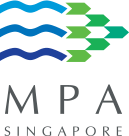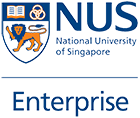Efficient Data Exchange with Non-System Integrated Container Freight Station (CFS) and Machine Learning for Manpower and Equipment Deployment Planning
16 Jul, 2020As we move closer to the deadline of Smart Port Challenge 2020 submission, we are left with 3 more roadshows where maritime corporates share their insights on the innovation opportunities they put forth.
For this week’s roadshow (16 July), we had Ivy Tsui from the planning and strategy team, Tetsuya Haraoka from the process innovation team, and Yutaro Matsushima from the product development team at Yusen Logistics share more about why they are looking into Efficient Data Exchange with Non-System Integrated Container Freight Station (CFS).
They saw a growing trend in countries currently with smaller shipment volumes and hope to seize this upcoming opportunity. As a result, they are looking for an integrated and connected network to ensure the information exchanged is accurate and timely. This would enhance the cargo receiving flow and consolidation process flow – of cargo from different locations and suppliers. Hence, achieving economic of scales.
The problems they wish to address include:
- Reducing manpower and resources
- Reducing inaccurate data input
- Providing more timely updates on cargo status
- Reducing delayed cargo planning
- Reducing shipment delivery
Next, Ho Kong Meng, Senior Manager of the digital operations team at Jurong Port provided an in-depth look at their requirement for Machine Learning for Manpower and Equipment Deployment Planning.
He shared some key goals including increasing productivity by reducing the number of manpower required per hatch from 17 to 6-9 for example. As such, it is essential for skills upgrading and use of technology to increase productivity.
They are exploring the use of machine learning for deployment planning for a number of reasons:
- Knowledge retention is a challenge once the experts have retired
- Manual planning is laborious
- Manual planning is difficult to optimise
He also shared some really useful visuals that show the different kinds of cargo lifting gears requirements. This gives us an idea of the large number of variables that go into the deployment planning.
Re-watch the recording here!
Join us next Tuesday, 21 July at 4pm for a discussion on 2 of the innovation opportunities:
(1) Accurate Information about Tramp Vessel Schedule for Decision Making by Klaveness Digital
(2) Optimisation of Empty Container Repositioning by Pacific International Lines (PIL)
Register here!
Lastly, don’t forget to submit the Smart Port Challenge 2020 proposal template (download here!) and your company’s pitching deck by 10 August 2020 here!


